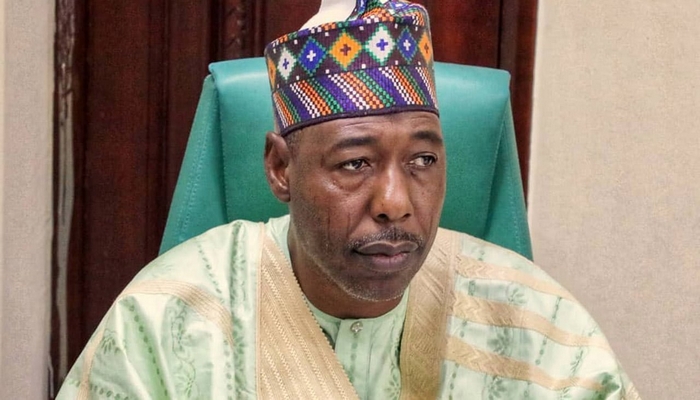
Gov. Babagana Zulum of Borno has announced an increase of 24 per cent in the Internally Generated Revenue (IGR) of the state.
Zulum made the disclosure on Thursday in Maiduguri at a sensitisation programme on the review of the revenue sharing formula.
The governor, whose speech was read by his Chief of Staff, Prof. Isa Marte, said the development was not unconnected with series of proactive measures introduced by his administration which minimized leakages.
“The Borno State Board of Internal Revenue Service has been re-positioned to boost the IGR of the state.
“In line with the Federal Government policy of Treasury Single Account (TSA), the Borno State Government has also keyed into the policy and automated all tax administration of the state in order to improve the economy of the state.
“The Borno State Ministry of Land and Survey has been transformed to Borno State Geographic Information Service in order to improve its ability to collect ground rent and ease the process of land acquisition.
“We have also rejuvenated the processes of revenue collection and management to prevent leakages and wastages in prudent management of scarce resources,” Zulum said.
The governor also noted that the improvement in security situation in the state and implementation of the state Internal Revenue Service Harmonised Law 2020, also led to increase in the revenue being generated.
According to him, N9.8 billion was generated from January to June this year which is more than the N8.2 billion targeted for the period.
“This collection is the highest revenue ever generated in the history of Borno state.
“Therefore, there is the need for Federal Government to consider this development and review upward the present allocation formula to Borno, since IGR is one key parameter considered in revenue sharing formula,” Zulum said.
In his opening remarks, Alhaji Adamu Dibal, the Commissioner representing Borno in the Revenue Mobilization Allocation and Fiscal Commission, said the nationwide sensitization was in line with the mandate of the commission.
He explained that the review of the revenue allocation formula was to ensure conformity with changing realities.
According to him, the changing socio-economic and political dynamics of the nation, has made it imperative for the commission to commence engagement with various stakeholders and people nationwide.
Dibal reiterated the commitment of the commission to provide a generally acceptable new revenue sharing formula that would meet the yearnings and expectations of the three tiers of government.






